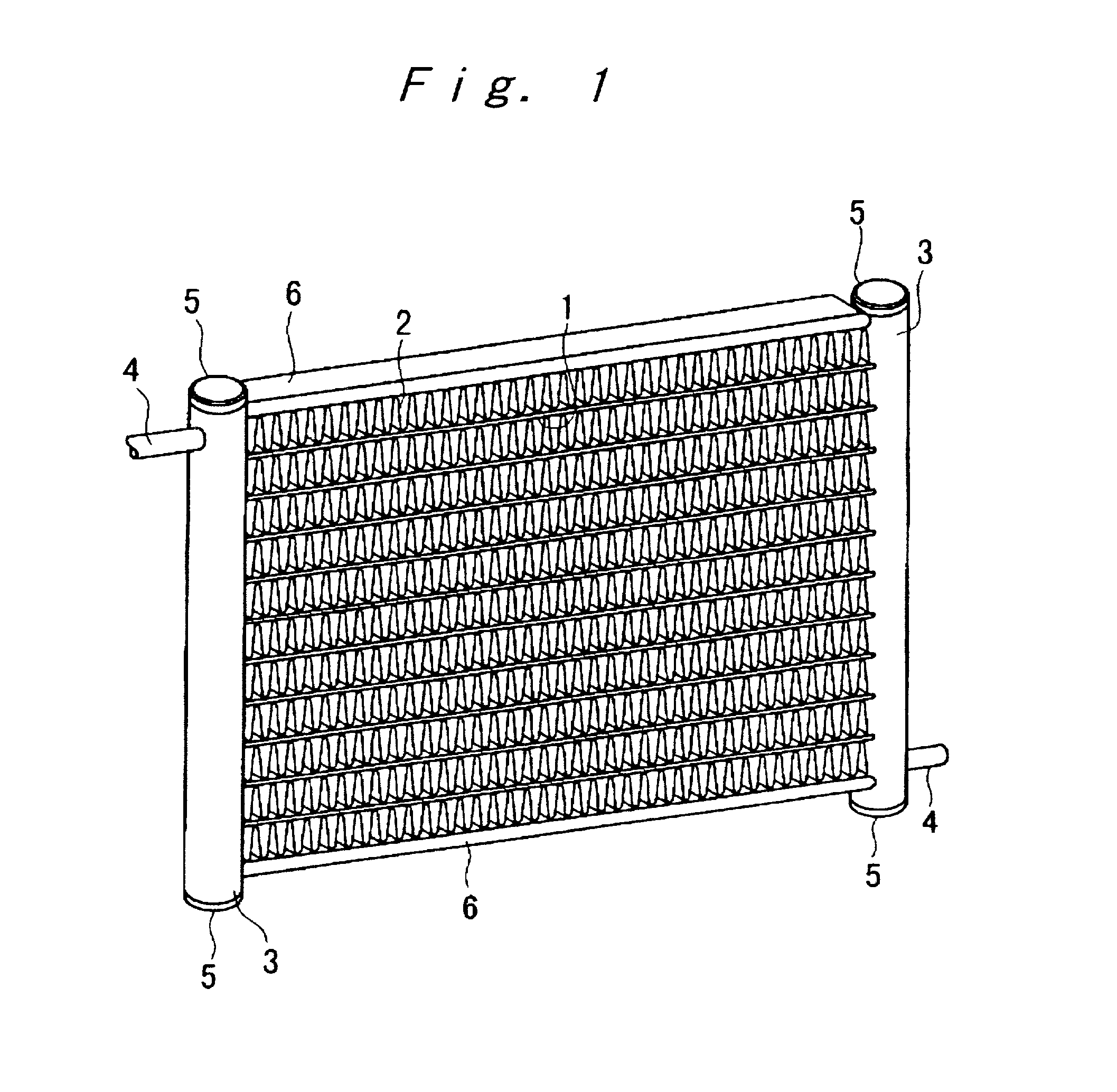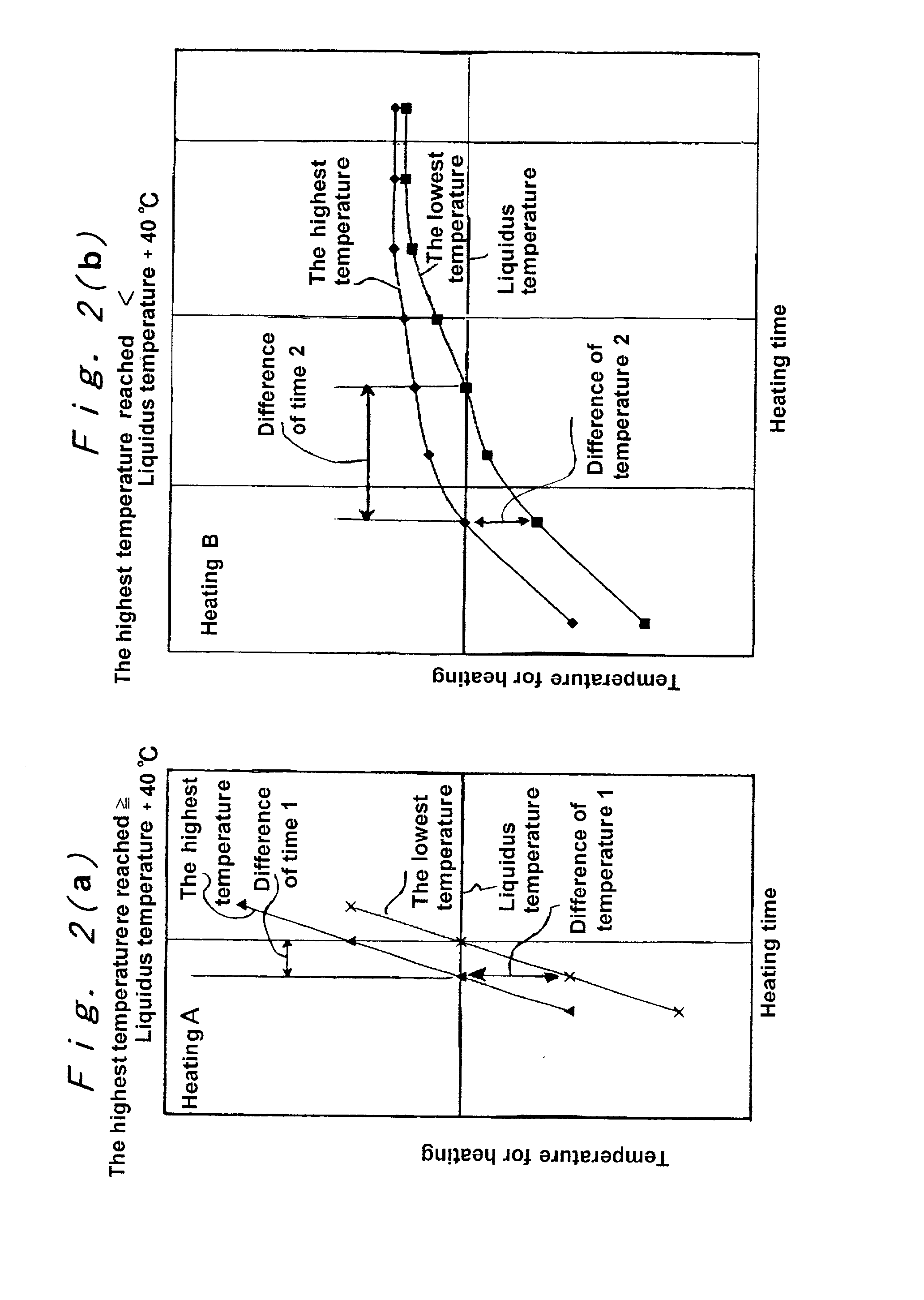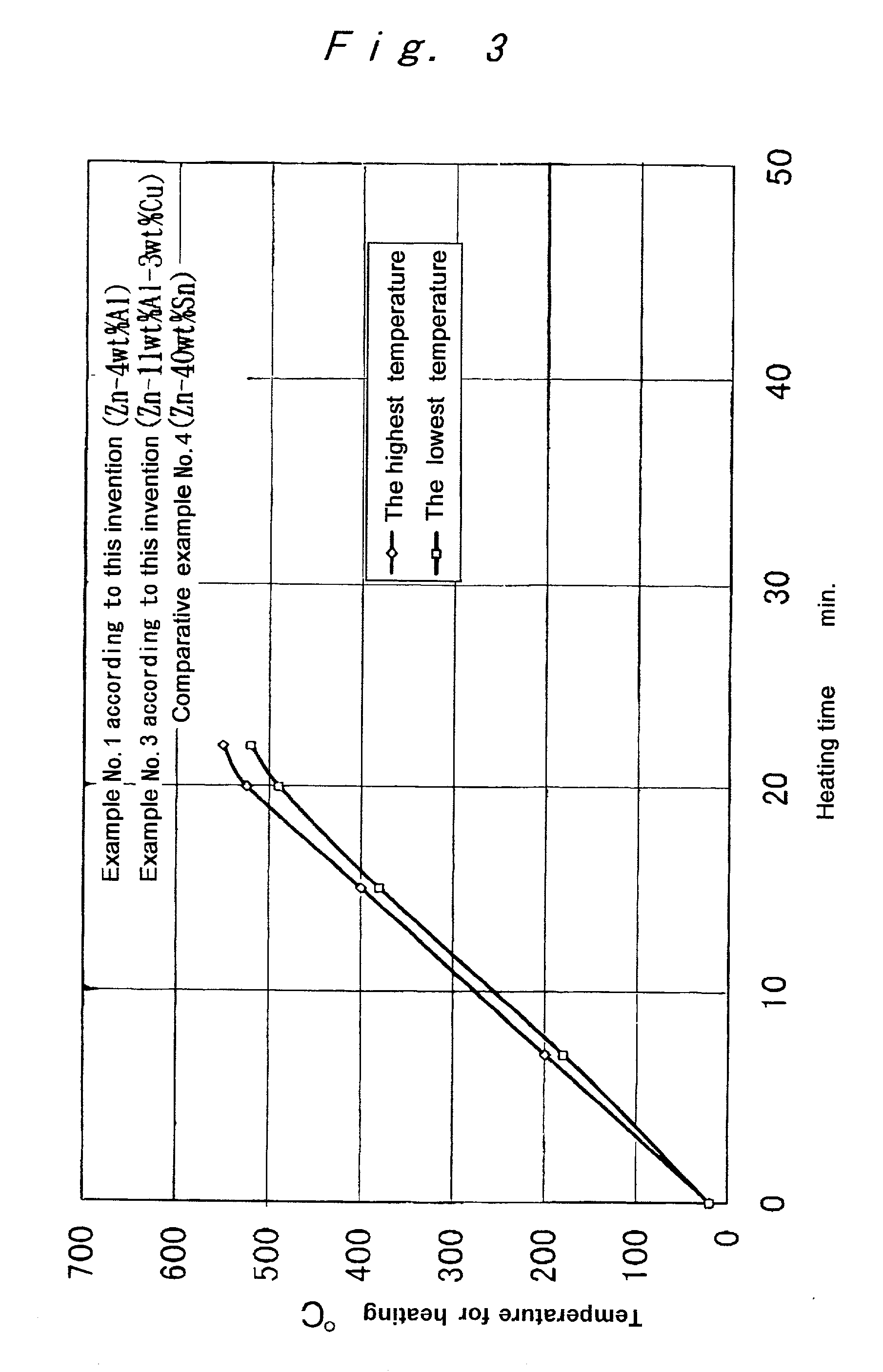Method for brazing aluminum alloy-assembled articles within a short period of time and a filler alloy usable at low temperature
a technology of aluminum alloy and assembly, which is applied in the direction of manufacturing tools, sintering apparatus, other domestic objects, etc., can solve the problems of deteriorating the function of flux, affecting the usability of conventionally used filler alloys at high temperature, and affecting the performance of the core alloy, so as to achieve sufficient anti-corrosion properties, enhance anti-corrosion properties, and reduce the effect of deterioration
- Summary
- Abstract
- Description
- Claims
- Application Information
AI Technical Summary
Benefits of technology
Problems solved by technology
Method used
Image
Examples
example 1
[0053] A core for heat-exchanger as shown in FIG. 1 was assembled and heated for brazing under the temperature conditions defined by the brazing method of the present invention.
[0054] A 1050 alloy plate having a thickness of 1.6 mm and a width of 16 mm was used as tube 1, a 3003 alloy plate to which 1% of Zn had been added having a plate thickness of 0.07 mm and a width of 16 mm was used as a fin 2, a 3003 alloy plate having a plate thickness of 1.2 mm was used as a header pipe 3, a 3003 alloy plate having a thickness of 1 mm was used as a pipe 4, a 3003 alloy plate having a thickness of 1 mm was used as an end cap 5, and a 3003 alloy plate having a thickness of 1.2 mm was used as a side plate 6. In the header pipe 3, holes were processed for thrusting the tube 1 or pipe 4 therein.
[0055] The tube 1 and the side plate 6 were previously precoated with powders of a filler alloy as shown in Table 1 (the powders having average particle size of 35 .mu.m prepared according to the atomizing...
example 2
[0062] As shown in FIG. 11, a brazing sheet 10 was prepared by rolling joint a sacrificial material (JIS 7072 Alloy of Al--Zn series) 8 in a thickness ratio of 10% onto one side of a core alloy (JIS 3003 Alloy of Al--Mn series) 7 and laminarly applying a filler alloy usable at low temperature, having a composition defined in the present invention, 9 powder (atomized powder of an average particle size of 35 .mu.m) incorporated with an organic binder onto the other side of the core material. A JIS 3003 Alloy plate 11 was brought into contact perpendicularly on the filler alloy usable at low temperature 9 layer of the brazing sheet 10, and the contact portion was coated with Cs flux. This structure was kept for 10 minutes in a furnace in nitrogen gas atmosphere kept at a temperature by 5.degree. C. higher than the liquidus temperature whereby the brazing sheet 10 and the JIS 3003 Alloy plate 11 were brazed.
example 3
[0066] A composite plate (0.25 mm in thickness) prepared by roll jointing a sacrificial material (JIS 7072 Alloy) on one side of a core alloy (JIS 3003 Alloy) at a thickness ratio of 10% was subjected to seam brazing while turning the core alloy front side to form a pipe material having a length of 150 mm. A filler alloy powder having a composition defined in the present invention was incorporated with an organic binder and applied on the surface of the pipe material and the pipe material formed a tube. As shown in FIG. 12, a plurality of the pipes are arranged in parallel and a corrugated fin (JIS 3003 Alloy+Zn of 1 wt %) of 70 .mu.m in thickness was placed between each tube 12, the whole structure was fixed with a jig and kept for 10 minutes in a furnace in nitrogen gas atmosphere at a temperature by 5.degree. C. higher than the liquidus temperature to braze the tube 12 and the fin 13.
PUM
| Property | Measurement | Unit |
|---|---|---|
| liquidus temperature | aaaaa | aaaaa |
| solidus temperature | aaaaa | aaaaa |
| liquidus temperature | aaaaa | aaaaa |
Abstract
Description
Claims
Application Information
 Login to View More
Login to View More - R&D
- Intellectual Property
- Life Sciences
- Materials
- Tech Scout
- Unparalleled Data Quality
- Higher Quality Content
- 60% Fewer Hallucinations
Browse by: Latest US Patents, China's latest patents, Technical Efficacy Thesaurus, Application Domain, Technology Topic, Popular Technical Reports.
© 2025 PatSnap. All rights reserved.Legal|Privacy policy|Modern Slavery Act Transparency Statement|Sitemap|About US| Contact US: help@patsnap.com



